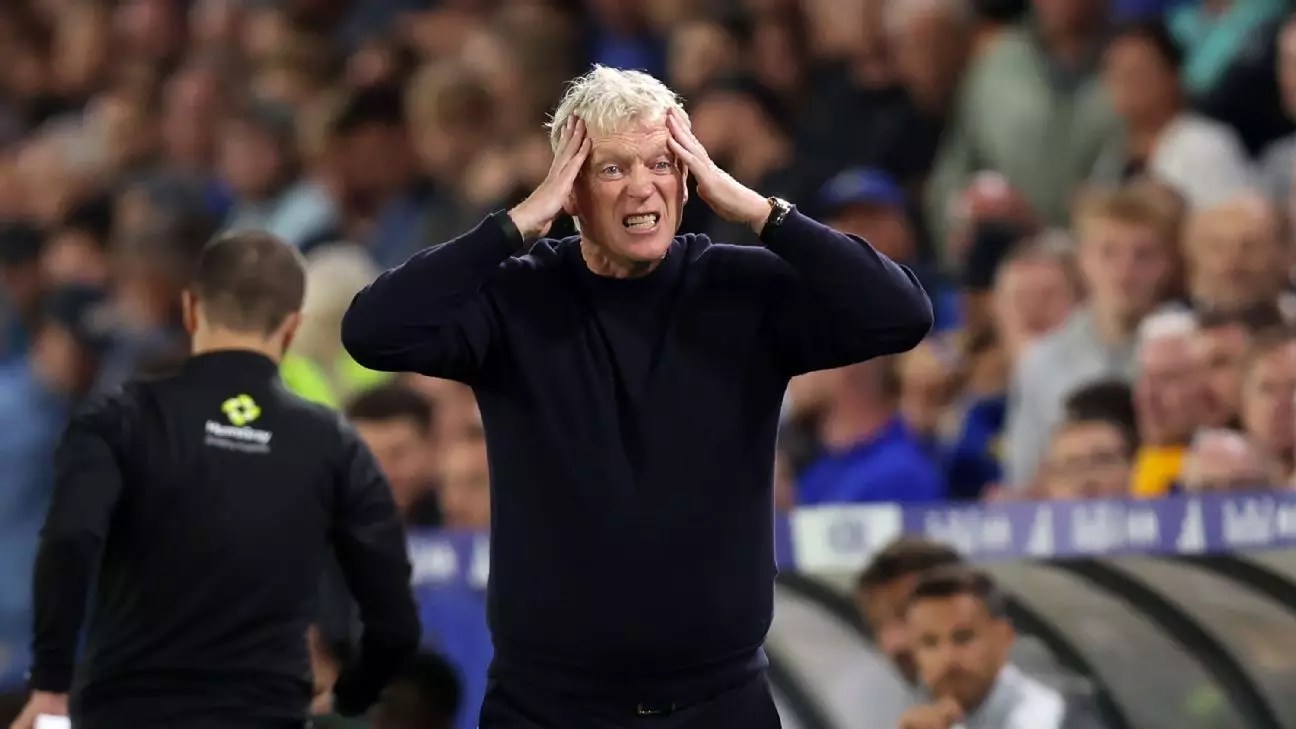The opening weekend of the Premier League has once again cast a harsh spotlight on the imperfect justice system that governs the beautiful game. Not only did the matches deliver moments of excitement and tactical brilliance, but they also exposed the fragility and, at times, the blatant flaws of refereeing decisions. The decision to award a controversial penalty to Leeds United in their narrow victory over Everton epitomizes how officiating can distort the rhythm and fairness of competition. It’s not merely about a missed or poor call; it’s about how such judgments undermine the integrity of a sport that relies heavily on trust and clarity.
The incident involving Everton’s James Tarkowski stands out as a stark example of how subjective and inconsistent VAR interventions can be. Despite the ball hitting his upper arm—an area rarely associated with deliberate handball—referee Chris Kavanagh, after reviewing footage with the aid of VAR, upheld the decision that ultimately decided the game. This decision is emblematic of a broader systemic issue within the league: the inconsistency and often inexplicable nature of refereeing standards. Fans and clubs alike are justified in questioning whether referees are equipped or willing to make impartial calls or are simply influenced by the high-stakes pressure that comes with Premier League matches.
Moyes’s outspoken criticism underscores an unsettling truth: refereeing quality appears to be declining, with a weekend full of questionable decisions tarnishing the sport. Such controversies not only affect the immediate result but also threaten to erode the collective confidence in officiating. For a league so globally revered, the need for transparent, consistent, and accurate refereeing has never been more critical. Without it, football risks devolving into chaos where outcomes hinge not solely on skill and determination but on the whims of human judgment.
The Struggles and Triumphs of Emerging Talents in a Competitive Arena
Amidst the noise surrounding referees and VAR, the game’s genuine triumph lies in the rise of young or under-the-radar players raising their stakes on the grand stage. Lukas Nmecha’s decisive penalty for Leeds is more than just a winning moment; it symbolizes hope and resilience for a player attempting to rebuild his career after injury setbacks. His cool-headed finish exemplifies the mental fortitude required at this level—an act of courage that outweighs any debate over referee decisions.
Nmecha’s journey highlights the unpredictable nature of football’s talent landscape. A player who had to endure injury-ridden seasons in Bundesliga and was often overlooked due to circumstances beyond his control has now become a pivotal figure in Leeds’s efforts to reclaim top-flight status. It also emphasizes how clubs that invest in depth and resilience can benefit immensely when opportunities surface unexpectedly. The strategic decision to sign him on a free transfer speaks volumes about Leeds’s scouting and long-term vision. His performance serves as a reminder that perseverance and mental toughness can turn the tide, even in a league where every misstep can be costly.
Furthermore, Nmecha’s moment underscores a broader truth in football: talent can flourish despite adversity. His composure during a critical penalty spotlights the importance of psychological resilience, particularly for players stepping onto the pitch from the bench. Such qualities are often overlooked but are crucial to success at the highest levels. As Nmecha demonstrated, sometimes a single moment of calm can decisively shift the narrative around a player and his team, offering hope that even in the face of injury and doubt, greatness is achievable.
Building Foundations for a New Era
The upcoming season promises a fresh start for clubs like Everton and Leeds, each with ambitions and vulnerabilities that will define their stories. Everton’s move to their innovative Bramley-Moore Dock stadium signifies more than just a new home; it symbolizes a renewal of identity and aspiration. Despite the loss, Moyes’s team has reasons to believe they can regain form and challenge for higher honors. The aim will be to translate the frustrations of opening weekend into motivation for improvement.
Leeds, on the other hand, faces the daunting task of establishing themselves solidly among the league’s elite. The victory, secured by Nmecha’s decisive penalty, offers a glimpse of potential and resilience. Farke’s remarks about Nmecha’s character and the importance of mental strength reinforce the notion that this team’s success will depend on nurturing emerging talents and maintaining the intense competitive spirit demonstrated in their home opener.
Unlike the superficial debates over officiating, those of us passionate about football recognize that true progress is rooted in the development of players, tactical evolution, and sustained team effort. The opening weekend, with its controversies and surprises, serves as a stark reminder that football’s heart beats strongest when integrity, perseverance, and trust in the game’s fairness are upheld. Despite the imperfections, the sport continues to inspire, challenge, and captivate—a testament to its enduring power and potential for growth.


Leave a Reply